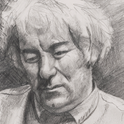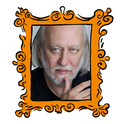(Profile, £19.99)
According to Galileo, the language of nature is mathematics. But the language in which he reported his revolutionary observations with the telescope was neither pure maths nor his native Italian, but Latin. It was in this ossified tongue that scholars of all stamps had elected to communicate in the Renaissance: a choice dictated not just by the convenience of having a shared language (Italian would have done just as well for that) but for its symbolic link to an idealised vision of antiquity.
Yet times were changing. Isaac Newton wrote his Principia (1687) in Latin, but for his Opticks (1704) he switched to English. (A Latin version came two years later.) The scientific Babel had arrived. In this highly original and wonderfully engaging book, historian of science Michael Gordin examines how science has sought through the ages to arrive at universal truths in a polyglot fashion, and how its dominant languages have come and gone. Today science is almost universally communicated in English (its ascendance from a mere 50 per cent market share in 1960 is bracing), but that was never inevitable. In the early 20th century, German seemed the better bet; the world wars put paid to that. Among Gordin’s revelations are the movements around the turn of the century to unify scientific discourse with an invented language: you know about Esperanto, but how about Volapük or Ido, the latter championed by Nobel laureate Wilhelm Ostwald? It is hard to imagine that anyone with even the slightest interest in science or language will fail to find this book a treat.
According to Galileo, the language of nature is mathematics. But the language in which he reported his revolutionary observations with the telescope was neither pure maths nor his native Italian, but Latin. It was in this ossified tongue that scholars of all stamps had elected to communicate in the Renaissance: a choice dictated not just by the convenience of having a shared language (Italian would have done just as well for that) but for its symbolic link to an idealised vision of antiquity.
Yet times were changing. Isaac Newton wrote his Principia (1687) in Latin, but for his Opticks (1704) he switched to English. (A Latin version came two years later.) The scientific Babel had arrived. In this highly original and wonderfully engaging book, historian of science Michael Gordin examines how science has sought through the ages to arrive at universal truths in a polyglot fashion, and how its dominant languages have come and gone. Today science is almost universally communicated in English (its ascendance from a mere 50 per cent market share in 1960 is bracing), but that was never inevitable. In the early 20th century, German seemed the better bet; the world wars put paid to that. Among Gordin’s revelations are the movements around the turn of the century to unify scientific discourse with an invented language: you know about Esperanto, but how about Volapük or Ido, the latter championed by Nobel laureate Wilhelm Ostwald? It is hard to imagine that anyone with even the slightest interest in science or language will fail to find this book a treat.












